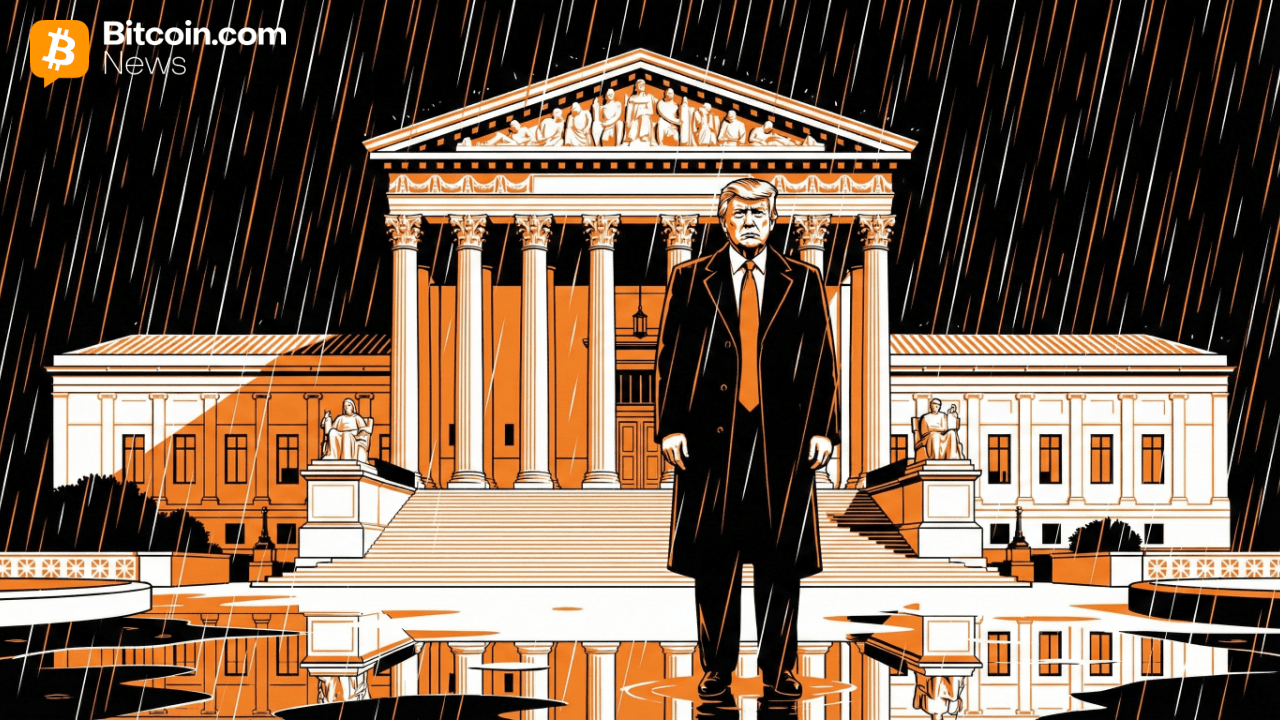Kraken‑Backed Tokenized Stocks Surpasses $25 Billion in Volume
Federal Reserve CBDC Poses Privacy and Freedom Risks
(Originally posted on : Crypto News – iGaming.org )
The idea of a Central Bank Digital Currency (CBDC) in the US has ignited a contentious discussion, with issues like regulatory power and privacy taking center stage. Some of these concerns are clarified in a recent study by the American Principles Foundation Initiative (AFPI), which emphasizes the necessity of prudence and legislative monitoring.
Privacy Under Threat
The study from the AFPI presents an important issue: the possible loss of people’ financial privacy. A CBDC might provide the government unrestricted access to all financial transactions, raising concerns about the security of personal information held by people. Recent occurrences have raised questions about government agencies’ capacity to manage Americans’ transaction data securely, such as IRS data leaks.
New players only. Exclusive Welcome Bonus of 177% + 77 Free Spins
According to the research, granting the government this level of access might pave the way for the selective exclusion of some populations from the financial system. Federal officials encouraged banks to break relationships with organizations like payday lenders and gun traffickers under the clandestine Operation Choke Point under President Obama, the article notes. The report notes, “The actions of the federal government during Operation Choke Point underscore the heart of the issue with giving the federal government full authority to bypass the law in accessing and censoring Americans’ financial privacy and assets.”
Unchecked Power and Regulatory Capacity
The authors Faulkender and Vasquez emphasize the dangers of giving the federal government unrestricted authority, particularly when it comes to circumventing legal procedures to access and perhaps censor the financial information and assets of Americans. They also question the Federal Reserve’s ability to start a CBDC in light of previous difficulties such sharp inflation increases and significant bank collapses. Three large bank collapses in the United States during the first half of 2023 have prompted questions about the Fed’s capacity to handle such financial upheaval.
Since the Federal Reserve cannot issue a CBDC without express Congressional permission, the AFPI study strongly urges congressional action. The authors support legislation that places limitations on the formation and operation of a CBDC in an effort to keep Congress solely responsible for the decision to launch a digital currency.
New players only. Exclusive Welcome Bonus of 177% + 77 Free Spins
A Plea for Clarity and Boundaries
In conclusion, the paper acknowledges the potential advantages of new payment innovations but argues that these benefits shouldn’t be at the expense of concentrating fiscal management under the sole supervision of the Federal Reserve. The authors warn Congress against allowing the Federal Reserve to create a digital currency without clearly defining those limitations and emphasize the hazards to privacy and autonomy.
It’s important to note that presidential hopefuls Ron DeSantis and Robert F. Kennedy Jr. have also expressed their opposition to CBDCs, contributing to the ongoing discussion over the future of digital currencies in the United States.
The balance between advancing technology and upholding fundamental rights like financial privacy continues to be a crucial issue for both the public and governments as the discussion heats up.







 Bitcoin
Bitcoin  Ethereum
Ethereum  Tether
Tether  XRP
XRP  USDC
USDC  Solana
Solana  TRON
TRON  Dogecoin
Dogecoin  Lido Staked Ether
Lido Staked Ether  Figure Heloc
Figure Heloc  Bitcoin Cash
Bitcoin Cash  WhiteBIT Coin
WhiteBIT Coin  Cardano
Cardano  USDS
USDS  LEO Token
LEO Token  Wrapped stETH
Wrapped stETH  Hyperliquid
Hyperliquid  Chainlink
Chainlink  Wrapped Bitcoin
Wrapped Bitcoin  Ethena USDe
Ethena USDe  Binance Bridged USDT (BNB Smart Chain)
Binance Bridged USDT (BNB Smart Chain)  Canton
Canton  Monero
Monero  Stellar
Stellar  USD1
USD1  Wrapped eETH
Wrapped eETH  Rain
Rain  Hedera
Hedera  sUSDS
sUSDS  Litecoin
Litecoin  Dai
Dai  Zcash
Zcash  Coinbase Wrapped BTC
Coinbase Wrapped BTC  PayPal USD
PayPal USD  Avalanche
Avalanche  Shiba Inu
Shiba Inu  WETH
WETH  Sui
Sui  Toncoin
Toncoin  World Liberty Financial
World Liberty Financial  USDT0
USDT0  Cronos
Cronos  Tether Gold
Tether Gold  MemeCore
MemeCore  PAX Gold
PAX Gold  Uniswap
Uniswap  Polkadot
Polkadot  Mantle
Mantle  Ethena Staked USDe
Ethena Staked USDe  BlackRock USD Institutional Digital Liquidity Fund
BlackRock USD Institutional Digital Liquidity Fund  Aave
Aave  Falcon USD
Falcon USD  Aster
Aster  Pepe
Pepe  Bittensor
Bittensor  OKB
OKB  Global Dollar
Global Dollar  Bitget Token
Bitget Token  Circle USYC
Circle USYC  HTX DAO
HTX DAO  syrupUSDC
syrupUSDC  Ripple USD
Ripple USD  Pi Network
Pi Network  Sky
Sky  Ethereum Classic
Ethereum Classic  NEAR Protocol
NEAR Protocol  BFUSD
BFUSD  Ondo
Ondo  Pump.fun
Pump.fun  Superstate Short Duration U.S. Government Securities Fund (USTB)
Superstate Short Duration U.S. Government Securities Fund (USTB)  Internet Computer
Internet Computer  Cosmos Hub
Cosmos Hub  POL (ex-MATIC)
POL (ex-MATIC)  Gate
Gate  KuCoin
KuCoin  Worldcoin
Worldcoin  Jupiter Perpetuals Liquidity Provider Token
Jupiter Perpetuals Liquidity Provider Token  Midnight
Midnight  NEXO
NEXO  Jito Staked SOL
Jito Staked SOL  Ethena
Ethena  USDtb
USDtb  Binance-Peg WETH
Binance-Peg WETH  Official Trump
Official Trump  Rocket Pool ETH
Rocket Pool ETH  Spiko EU T-Bills Money Market Fund
Spiko EU T-Bills Money Market Fund  Algorand
Algorand  Binance Bridged USDC (BNB Smart Chain)
Binance Bridged USDC (BNB Smart Chain)  USDD
USDD  Render
Render  Wrapped BNB
Wrapped BNB  Janus Henderson Anemoy AAA CLO Fund
Janus Henderson Anemoy AAA CLO Fund  Function FBTC
Function FBTC